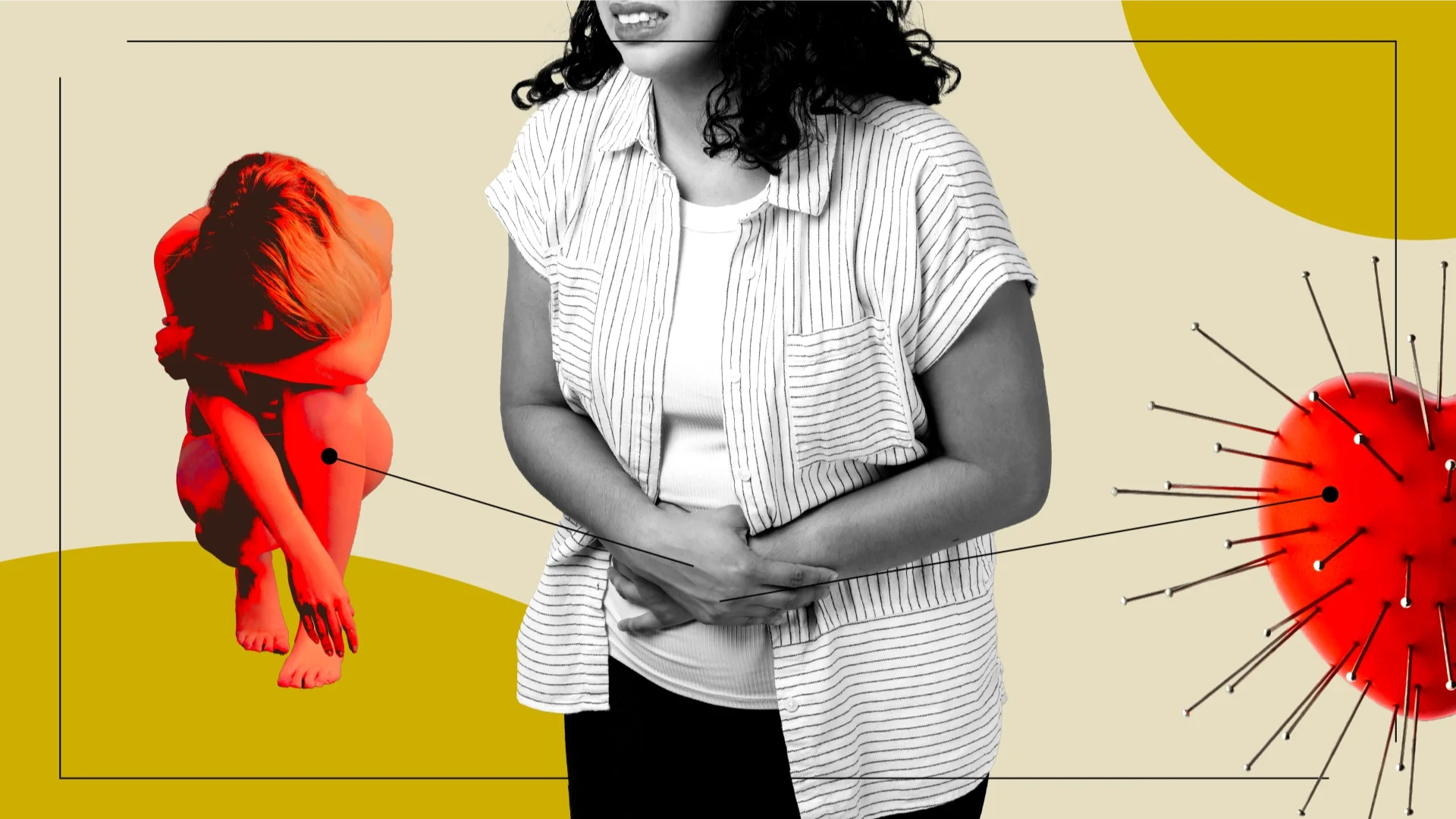Key takeaways:
An ectopic pregnancy happens when a fertilized egg grows in the wrong place and the fetus cannot survive.
Ectopic pregnancies are rare and serious.
Some people with ectopic pregnancies don’t experience symptoms. Others have vaginal bleeding, cramping, or dizziness and/or pain in the abdomen, shoulder, or lower back.
Pregnancy sometimes comes with complications.
An ectopic pregnancy happens when a fertilized egg grows outside the uterus, such as in a fallopian tube, where a fetus cannot survive.
Just as each pregnancy, birth, miscarriage, and loss of an infant is unique, so, too, is each ectopic pregnancy. Below, four women share their experiences.
‘I didn’t even know I was pregnant’
For Margie Allman, a 58-year old Pilates instructor from Alpharetta, Georgia, an ectopic pregnancy years ago came as a shock. “I didn’t even know I was pregnant,” she says.
Margie had not even missed a period. Her symptoms started with mild pain and discomfort that felt like menstrual cramps. She started to feel more concerned when the cramps began to get more severe.
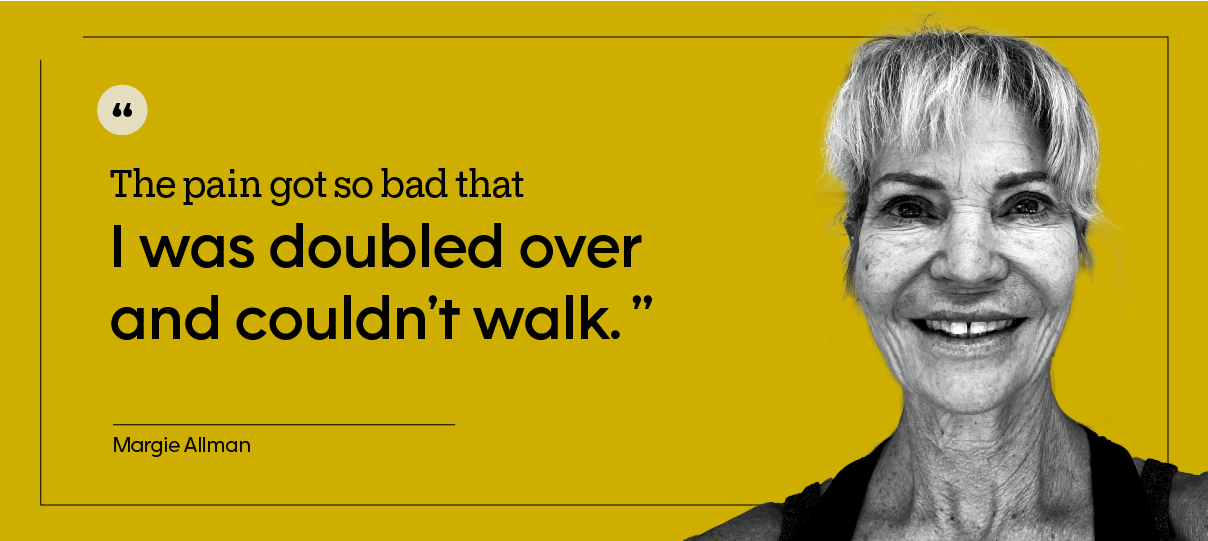
“The pain got so bad that I was doubled over and couldn’t walk,” Margie says. “It was gut-wrenching.”
That’s when she made her way to a friend’s apartment. “I was lying on the couch, clearly incapable of anything except experiencing the pain,” she says. “It was to the point where this level of pain was clearly abnormal.”
Margie’s friend insisted that they go to the hospital. When they arrived, doctors found that Margie’s ectopic pregnancy had ruptured. She was rushed to surgery. And, when she woke up, the pain was gone.
“I felt like a completely different person,” she says.
Read more like this
Explore these related articles, suggested for readers like you.
The trauma of ‘waiting to become unpregnant’
Abbe Feder, who is 44 and lives in Los Angeles, is now the mother of twins. But it was quite a journey to parenthood.
After many rounds of in vitro fertilization (IVF) and the tragic experience of a miscarriage, Abbe was skeptically elated when a blood test confirmed she was pregnant. But it didn’t last. The pregnancy was ectopic.
Abbe recalls feeling a range of emotions during that time. “I was pregnant!” she says. And then, she was waiting for it to end.
“It’s a special kind of torture where you’re waiting to become unpregnant,” she says.
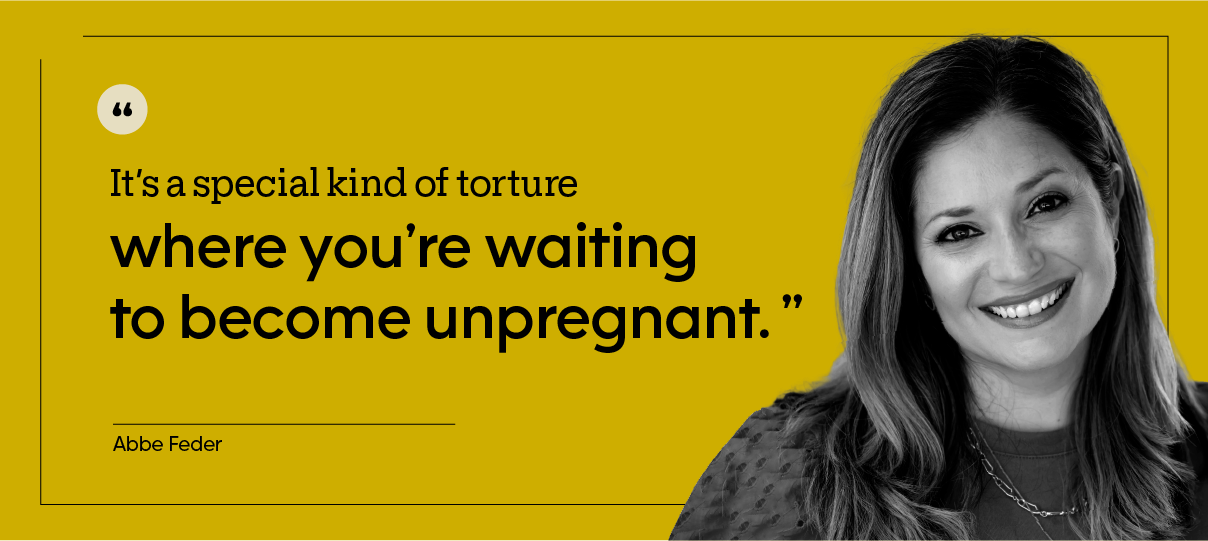
Abbe’s body did not appear to be clearing the ectopic pregnancy on its own, so a doctor prescribed her methotrexate, an injectable medication usually used to stop cells from multiplying. Because Abbe was undergoing fertility treatments, she was used to injections. But these were much more painful — physically and emotionally. Fertility injections were designed to help her become pregnant. These injections were designed to help end a nonviable pregnancy.
She remembers bleeding and spotting for more than a month. “Bleeding is so traumatic when you want so badly to be pregnant,” she says. “It was so much to carry emotionally.”
Abbe, who is now a fertility coach and the founder of InCircle Fertility, uses her experience as an inspiration to help others navigate fertility challenges.
A heartbreaking loss
Jackie Weisman was also going through fertility treatments when she had an ectopic pregnancy.
“I feel like it would have been missed if I was not going through fertility treatments and having every single aspect of my body being monitored,” says Jackie, a 39-year-old marketing director and mother of two who lives in Maryland.
Jackie recalls being told at one of her appointments that her blood work indicated she was pregnant. She was elated. She knew it was still incredibly early, but she couldn’t help but start envisioning the future of this child she wanted so badly.
“The second you know that you’re pregnant, you start thinking about who this baby could be and what they could do. What is their future going to look like?” she says.
As her providers monitored her progress over the next few days, her pregnancy hormone numbers started decreasing. At three weeks pregnant — a point at which most people don’t even know they’ve conceived — Jackie learned she had experienced an ectopic pregnancy. Her providers saw it on the ultrasound.
“To go from knowing I was pregnant to knowing that it’s gone is heartbreaking,” she says.
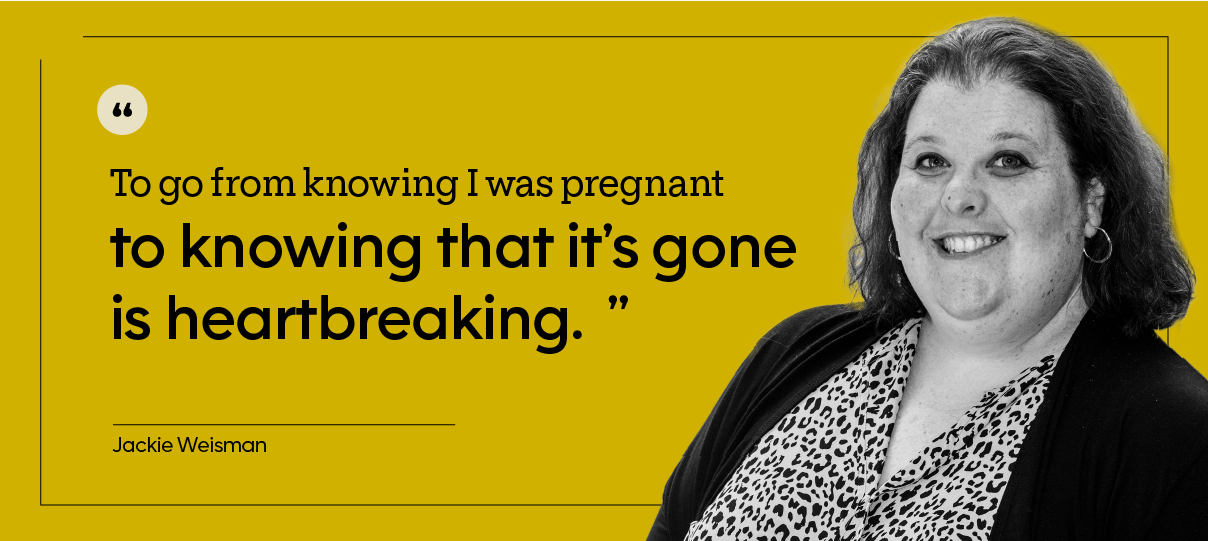
While she didn’t need surgery or medical intervention, her loss still felt traumatic.
“My best friend had a miscarriage pretty far along. It was heartbreaking,” she says. “I had this experience and, while it was also heartbreaking, it was heartbreaking in a different way. It was still a pregnancy that didn’t result in a baby.”
Being your own advocate could save your life
Becky Clapper understands the particular kind of loss of an ectopic pregnancy. Becky, a 36-years-old strategic business analyst and small business owner in Maryland, is a mother of two.
She was under the care of doctors at a fertility clinic when she got pregnant, about a year after a miscarriage. While her blood work confirmed that she was pregnant, her pregnancy hormone levels did not appear to be rising as quickly as they should. So her care team began testing her for human chorionic gonadotropin (HCG), a hormone that appears when a fertilized egg is implanted into the uterine wall.
Becky kept going in for monitoring. The ultrasounds didn’t pick up anything abnormal, but her providers told her something was off. By the time she was 8 weeks along, they still couldn’t detect a heartbeat and concluded that she was experiencing an ectopic pregnancy.
Becky was prescribed two doses of methotrexate and told to watch out for shoulder pain, which could be a sign of a blood clot. A few days after her second dose, she developed severe pain in her shoulder. By the time she made it to the hospital, she was also experiencing extreme abdominal pain.
“It was severe abdominal cramps — like, jabbing abdominal cramps,” she says. She needed surgery.
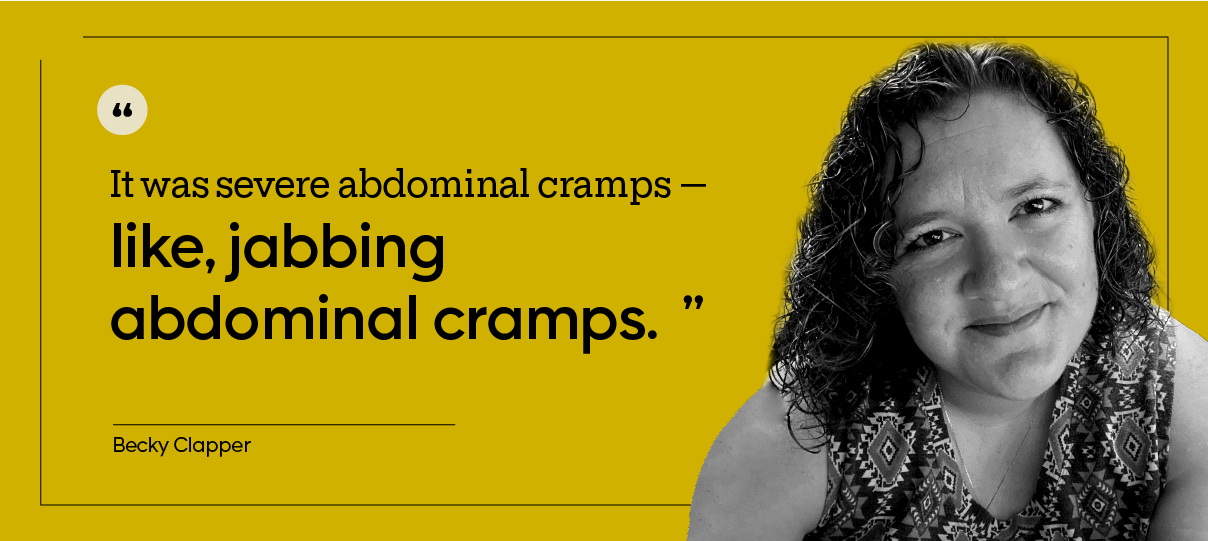
“My husband was the one to tell me that my right fallopian tube had ruptured,” she says of waking up from the surgery. “My stomach was filling with blood. I thought, ‘Oh, my God. Had I waited any longer, it could have been a completely different outcome.’”
What does the doctor say?

Patricia Pinto-Garcia, MD, MPH
Medical Editor
Most people who develop an ectopic pregnancy aren’t being closely monitored by fertility centers. People who are being monitored often catch their ectopic pregnancy early and can get immediate treatment with medication, like methotrexate. But those who aren’t often don’t realize something is wrong until they develop symptoms.
Most ectopic pregnancies happen in the fallopian tube. When a fertilized egg implants, whether it’s in the uterine wall or in the fallopian tube, it starts dividing and forming an embryo. With an ectopic pregnancy, as that embryo grows, it stretches the wall of the fallopian tube.
A fallopian tube isn’t designed to be stretched. So, when the pressure on it increases, people start feeling pain in their pelvis, groin, abdomen, or back. Some people feel shoulder pain because of how the internal nerves connect to the rest of your body.
At first, there might be only mild pain or cramping. But, over time, the symptoms will get worse. Eventually, the fallopian tube can burst from being stretched. This is a medical emergency and can be life-threatening.
If you’re sexually active and you experience sudden, intense pain in your lower abdomen or shoulder, go to an emergency room immediately. Ectopic pregnancies are a common type of medical emergency, so the facility will be prepared to test you for one.
If you think you could have an ectopic pregnancy, don’t wait. Get care right away. It could save your life.

Why trust our experts?




